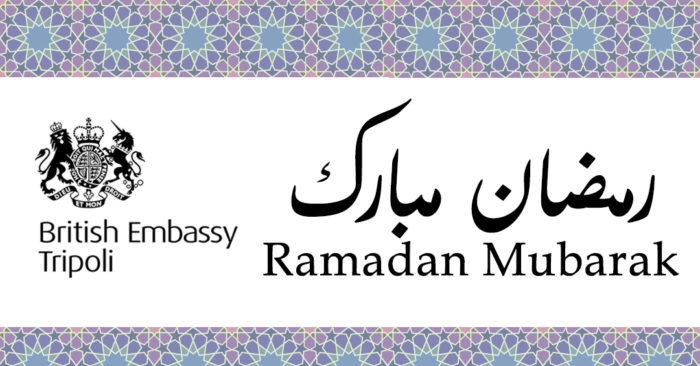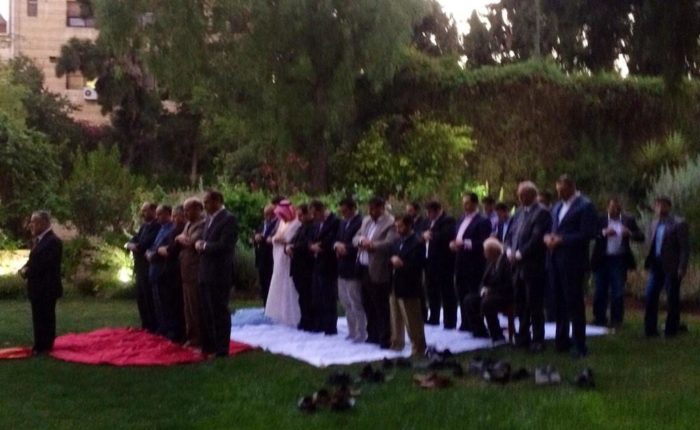6th June 2016 Tripoli, Libya
Ramadan Mubarak


Today marks the first day of Ramadan. It is the source of many misunderstandings for non-Muslims. Some people might regard it as inappropriate for a non-Muslim to comment on this religious practice. But, as seen by an outsider, it a central to life in the Arab world. Moreover, the true purpose on Ramadan is very relevant to Libya today.
As we all know, the practice of fasting from dawn to dusk during Ramadan is one of the five pillars of Islam. The timing follows the moon, so it changes about 11-12 days each calendar year.
The true purpose of fasting is to focus the mind on spirituality, to purify the mind and body through prayer and a focus on the needs of others.
Ramadan is therefore a very important month for all Muslims: the gates of heaven are opened and the gates of hell are closed. Its relevance to the situation in Libya comes from the focus on healing and improvement.
A basic theme during the month is reconciliation. If Libyans could put aside their differences – even for a month – to work together, they could build a secure, stable and successful country. They could build on their common interest as Libyans. Peace, justice and the rule of law are common objectives that require common effort.
Part of reconciliation is forgiveness. Putting aside old enmities and resentments is not easy. Libya unfortunately suffers from many legacies from the time of the dictatorship and the revolution. Forgiving those who have inflicted pain can be painful; it requires great courage. Those who are strong enough to show compassion can set themselves free to concentrate on what really matters for the greater good of society.
Society benefits when people work together. And getting together, as families and in groups is a fundamental part of Ramadan. By sharing their food, Libyans share their common humanity and can consider how to resolve the many challenges facing their country. It should not be a question of trying to win everything at the expense of others. Compromise means all Libyans will win together.
This principle includes all parts of society through charity, the process of zakat: giving to the poor and needy. A simple act of kindness can be a strong sign of wanting to help compatriots, irrespective of where they come from.
Many non-Muslims experience Ramadan as a time when life slows down, working hours are shorter and prices rise as people spend more on presents, clothes and family meals. This superficial impression misses the fundamental benefits that are regarded as worthwhile by those who are fasting.
I have seen these benefits in other parts of the Arab World. I have admired the dignity and fortitude with which people approach the month of Ramadan, especially during summer when the days are longer and the heat makes people thirsty.

In Jordan, we would host an iftar for the people we worked with. Having a large number of politicians and officials coming together to break their fast and pray in the garden was a powerful illustration of the spirit of the month. In 2012 we hosted a suhour meal and watched the opening ceremony of the London Olympics with the families of the Jordanian athletes who were participating in the Games.
Ramadan is followed by Eid Al-Fitr, one of the most important festivals in the Islamic world. It is a joyous time when people give thanks for having completed the fast and celebrate with their families, giving presents and eating together.
I hope that Ramadan this year in Libya will be a time of reconciliation, forgiveness and togetherness. And next year, I hope to be in Libya for Ramadan, to share Libyan food and culture. Meanwhile: Ramadan Mubarak!